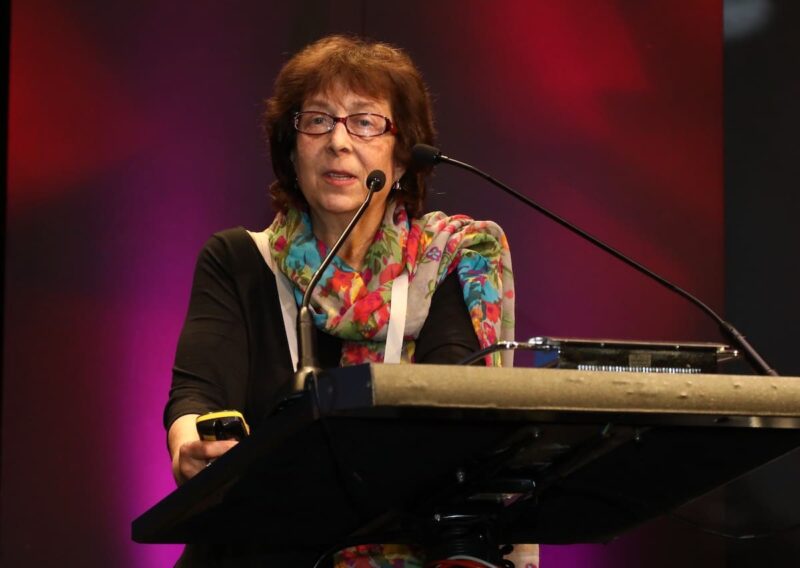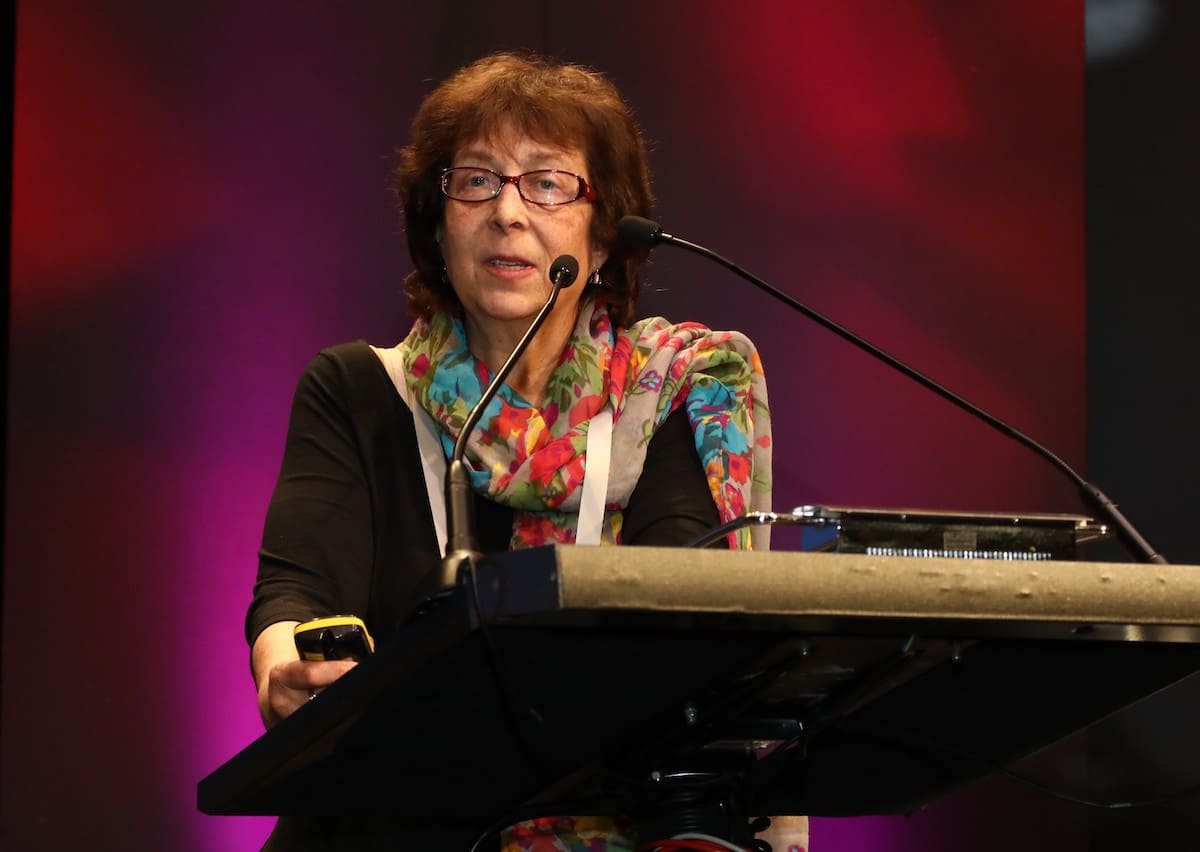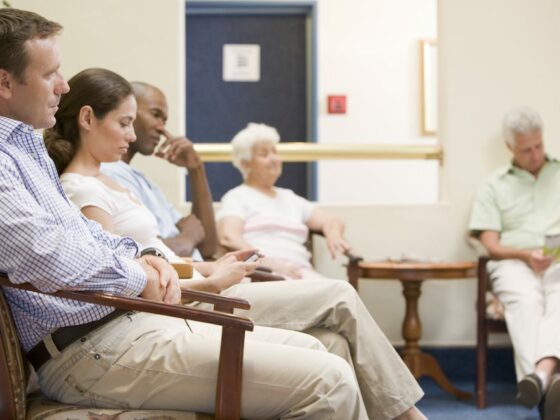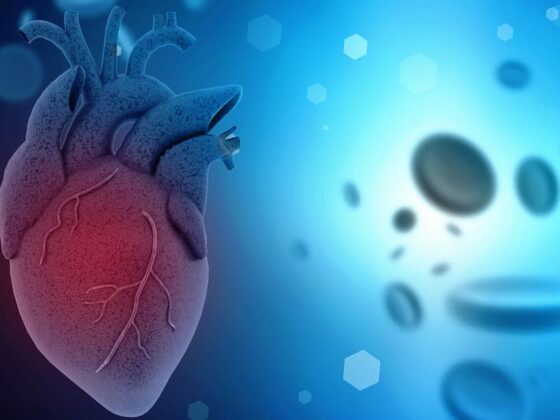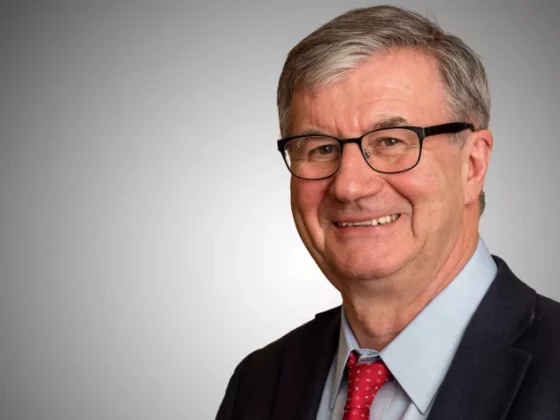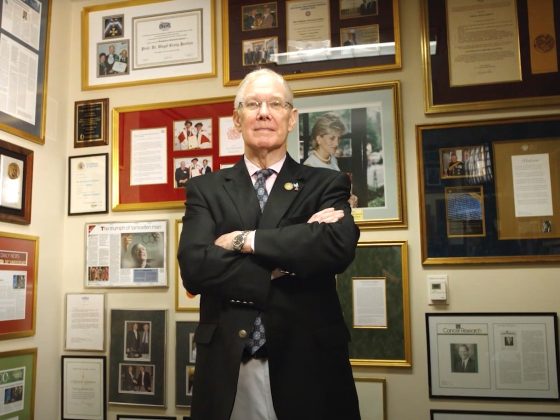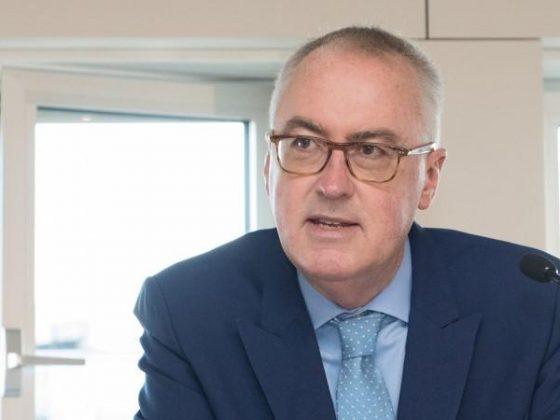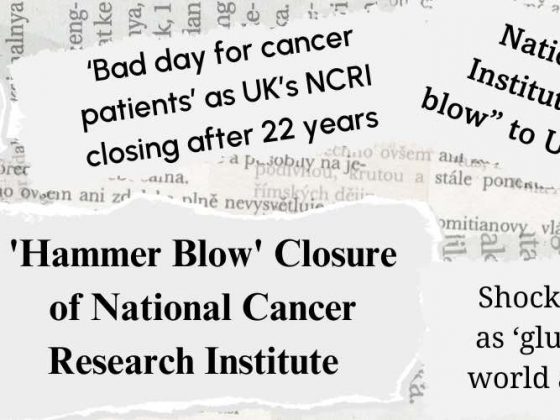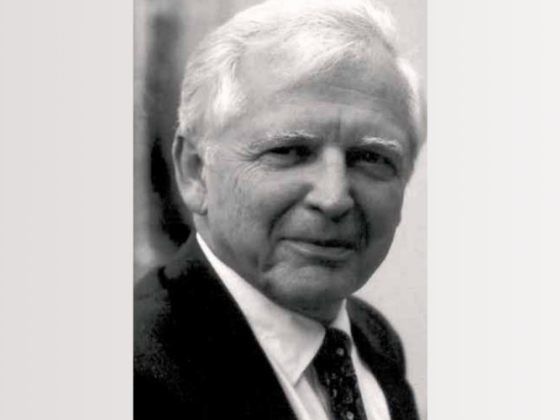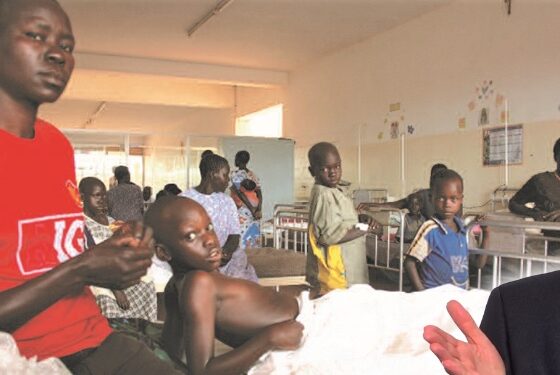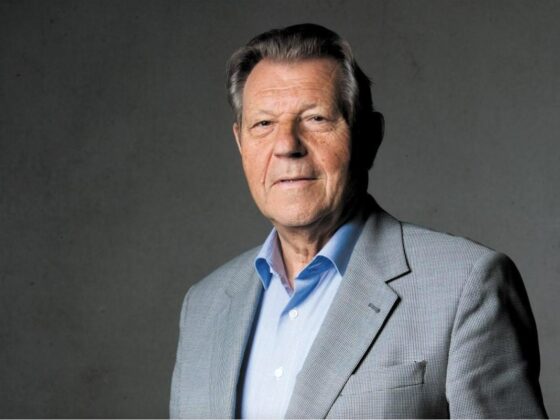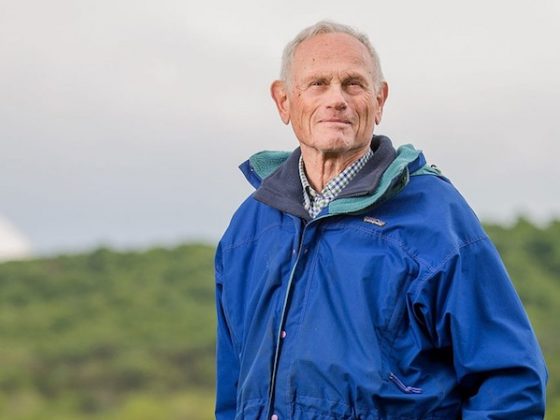Bella Kaufman had great compassion for all cancer patients – but on one in particular she was a bit tough. “Why am I so extra strict with myself?” she asked. “I have a non-evidence based fear of treatment disruption. I don’t reduce the dosage. I don’t split. I don’t space it out. I don’t skip… But to my patients – a totally different story. If needed, I reduce the dose. I tend to the side effects. I don’t do that to myself and it bothers me this double standard.”
Kaufman, director of the Institute of Breast Oncology and president of the oncology department at Israel’s Sheba Medical Center, doctor, researcher, mentor, human rights advocate, mother, grandmother and friend, died on 13 May 2021. She handled the experience of living with, and dying from breast cancer ‒ a disease she knew only too well ‒ the same way she handled everything in her life. She didn’t look away, she refused to compartmentalise the different aspects of who she was, and she allowed no exceptions to the honesty and integrity that guided her life.
While many close professional friends and advisors were concerned about Kaufman’s choices relating to her own treatment, Kaufman was bothered only by a question of ethics: Why were the standards she applied to her own care different from those she applied for her patients?
The extract at the top of this piece from her opening speech to the 2017 ABC conference, has been viewed more than 4000 times as a relentlessly honest account of the complexities and challenges of being both patient and doctor. The loneliness resulting from knowing the disease and its course so well ‒ having no outside ‘expert’ to soften the blows and offer the hope she always provided for her patients and their families. The burden on her own family members. Her struggles when confronted with other patients with advanced liver disease, while insisting on continuing to care for them. “It is as if they put a mirror in front of me. It is all my nightmares.” The sense of diminished stature as a professional, feeling consigned to the past ‒ ‘dismissed’ ‒ by some colleagues, noting people’s reactions at meetings “wide eyed as if they ask: are you still here?” (then ‒ softening the blow to her audience ‒ adding “And then immediately it turns to ‘Oh it’s so good to see you,’ and I believe them.”)
She fretted about double standards when a close professional friend provided for her exactly what she tried to do for her patients
She also fretted about double standards when a close professional friend provided for her exactly what she tried to do for her patients ‒ access to a drug that could help. A CDK4/6 inhibitor was made available to Kaufman by means of an access programme that also covered scores of other women in the country. She told her 2017 audience how many patients were still benefiting from this access. “I was so happy about that. When I think of the special helps and rights that I have as a physician, sometimes this story quiets my conscience.”
Doctor and researcher
Kaufman trained as a clinical oncologist and radiotherapist at the Hebrew University and Hadassah medical centre in Jerusalem between 1985 and 1990, and started her oncology career at a small but distinguished oncology unit at Jerusalem’s Shaare Zedek medical centre.
It was an exciting time in breast oncology in Israel. In 1991 the key genetic mutation responsible for the high prevalence of hereditary breast cancer in Ashkenazi Jewish women had been identified by an American geneticist on what became known as the BRCA1 gene. By 1996 the first test kit arrived on the market, opening possibilities for screening programmes to identify mutation carriers and for strategies to manage risk.
At around this time Kaufman met and became close friends with Karen Gelmon, then on a three-month sabbatical visit from Canada and now Professor of Medicine at the University of British Columbia and Medical Oncologist at the Vancouver Cancer Centre.
Kaufman was starting to develop a research career at that time, says Gelmon, and was working with Ephrat Levi Lahad who had herself worked with Mary-Claire King, the woman who had first described the BRCA gene. “She and I spent a lot of time talking about hereditary breast cancer. Bella was very entrenched in that and we spent a lot a time trying to initiate a study about women’s perceptions about having a prophylactic mastectomy.”
Since 2013, when Angelina Jolie announced that she had had a double mastectomy, many women now consider this a real choice, but that was not true then. “At that time it was seen as mutilating,” says Gelmon. “Did women really want to do this? We talked a lot about what did it really mean? What was the real risk? Hereditary cancer was something that was only just starting to get noticed.”
In 2001 Kaufman moved to head up a larger breast cancer unit at the Chaim Sheba medical centre, affiliated with Tel Aviv university, and was able to start interventional drug trials. This allowed her to pursue her research interest in optimising the treatment of women with various types of HER2-positive disease. It also raised her national and international profile, which she used to advocate for patient access to new drugs including trastuzumab in the adjuvant setting, and the PARP inhibitor olaparib, which turned out to be particularly effective against cancers associated with the BRCA mutation.
“Many of us worried that AstraZeneca was not going to develop olaparib, despite a number of promising trials that had been done,” Gelmon remembers. “So Bella went to one of the people in the company and said that there were many Israelis with BRCA mutations, and that to provide drugs to those within the framework of a trial would be helpful.” This became ‘Trial 42’, joined by Susan Domchek from the USA. It was an access trial in many ways, and also became a landmark trial in that she also enrolled breast, ovarian and pancreatic and prostate cancer patients. “That was the first trial to really demonstrate its efficacy in pancreatic cancer. Although there were only four patients with pancreatic cancer, two of them had an amazing response. The trial also described the effect in prostate cancer and it further solidified the effect in breast and ovarian cancer.”
Listening, learning, and understanding what patients need and want was fundamental to who Kaufman was as a researcher and care giver
The study of attitudes to prophylactic mastectomy never quite got off the drawing board, but Gelmon says that the discussions underlined how listening, learning, and understanding what patients need and want was fundamental to who Kaufman was, not just as a person but as a researcher and care giver. “She understood diversity.”
Human rights activist
Kaufman made special efforts to reach women from different communities, including strict orthodox Haredi communities as well as migrant populations and Palestinian communities. The latter work she did principally through her involvement with Physicians for Human Rights ‒ a group set up in 1988 to struggle for the right to health in Israel and the Occupied Palestinian Territory. For this work Kaufman was honoured in 2013 with the American Society of Clinical Oncology Humanitarian Award.
Early on in her career she would help out at open clinics for migrants without access to healthcare and at mobile clinics operated in villages in the West Bank for people where access to adequate healthcare could be limited. She was also keen to spread her knowledge and expertise, and would do sessions teaching Palestinian volunteers about women’s health, how to do breast examinations and the need to be aware that breast cancer can hit at any age. As her research and international activities increased, she continued to provide advice and assistance to people referred to her by those clinics.
Hadas Ziv and Zoe Gutzeit from Physicians for Human Rights remember Kaufman as someone astonishingly generous with her time. “We were very fortunate to have her on our board and as a part of the HR open clinic, because we could take advantage of her expertise as an oncologist and breast cancer expert,” says Gutzeit. “Our clinic cannot provide oncological treatment – it’s a volunteer run clinic ‒ so whenever a cancer patient arrives or is diagnosed in our clinic, it takes a lot of effort to try to arrange for treatment for them because of the lack of health insurance. Bella was extremely helpful in trying to make such treatment possible, either through her hospitals or through personal connections. Sometimes it would involve appealing to pharmaceutical companies to try to get medications for our patients.”
Kaufman would also offer consultations for patients who had no access to expert oncologists, says Gutzeit: “Bella was very sensitive to the situation of cancer patients, to the incredible stress that one suffers on receiving this news, and it was a very important aspect of her work to make sure that patients are aware of their options and of what lies ahead.”
“She was very focused on the details and did not shy away from complexities. It was not black and white for her”
For Ziv, who chairs the group’s ethics committee, Kaufman’s contributions to helping navigate moral and political issues, especially during highly emotive situations, were as important as the medical side of her voluntary work. “Bella was a combination of morality and humanity that is to be honest very rare. She is not a missionary. Some human rights people become missionaries and they don’t see the complexities. She was very focused on the details and did not shy away from complexities. It was not black and white for her.”
Her attention to detail could often prove invaluable. “Sometimes when people spoke, in the ethics committee we would have arguments and she would listen, listen, listen, and then she would say one sentence, and then everyone would centre around this sentence, because she was so sharp in her mind. Really a combination of what a doctor should be: humane and compassionate and understanding and listening.
“And as a board member she understood the staff and what support we need to do our work and she would always have a good word or a hug for staff members in a difficult time, or during a conflict when the work was very hard. She brought us all together.”
Ziv also remembers, with deep gratitude, Kaufman’s readiness to focus tightly on what the group needed from her, sometimes even by supressing her own emotions. She mentions an instance during one of Israel’s operations in Gaza, when Kaufman’s son was doing his military service, “She never spoke about it, because she knew we couldn’t cope with it at the time. But she spoke about it later, how difficult it was on the one hand to work with Palestinians and to hear our criticisms of the military, but at the same time being a mother and caring about her son and his friends. It was important for our organisation to understand that it is not so easy. Sometimes we are also mothers or wives and she really got it nicely and very sensitively.”
International expert
Kaufman’s strength and ability to tackle complex situations head on, with a combination of humanity and attention to detail, are mentioned time and again by her international colleagues.
Olivia Pagani the breast cancer specialist who chairs the biennial BCY conference on Breast Cancer in Young Women says, “She was very balanced, very wise.”
Kaufman was involved in the BCY conference since the first event in Dublin 2012, contributing to the discussions defining consensus recommendations. “She was used to taking into account different situations, cultures, health systems. This was important because breast cancer in young women is not black and white ‒ the evidence is really less than in older women. The exercise at BCY is to put the evidence into context and try to have, not only evidence-based, but also experience based recommendations. She was really a very important part of this process.”
Pagani cites as an example the differences between Europe and US over the use of prophylactic mastectomy ‒ a procedure that has been shown to reduce the risk of developing breast cancer for people carrying harmful mutations on the BRCA1 and BRCA2 genes. It is now known that there are about 20 genes that carry a higher risk of developing breast cancer – and because there are so few women in each category there are no studies to show whether or not prophylactic surgery is also protective in these other cases.
“In breast cancer in young women you often do not have evidence… so you need to put common sense into the discussion. She was a guide”
Pagani summarises two approaches. The US strategy is to propose mastectomy for all women with these mutations. The European approach is to make no recommendations as they do not have the data. “Kaufman was in the middle. She was really able to say: ‘We have to discuss on a case by case basis. We need to put in the balance what we know and what we don’t know.’ That is why I think these kinds of consensus conferences are so important. They are not guidelines based on evidence, because in many fields of breast cancer in young women you do not have evidence because women are too few to run clinical trials. So you need to put the common sense into the discussion. She was a guide.”
Kaufman’s attention to detail and patient-centred approach were also highly valued in discussions around consensus guidelines for diagnosis and care of people with advanced cancer, which take place at the biennial ABC (Advanced Breast Cancer) conference.
Fatima Cardoso, who created the conference in 2011, and has chaired it ever since, says of Kaufman, “She always strived for us to be very accurate scientifically but she would not forget the humanity. She would be totally involved in more general recommendations for psychosocial support, the need for information, and she would give the same focus for that as for the specific genes to be tested and drugs to be given.”
Mentor
It was Cardoso who persuaded Kaufman to talk about her experience as doctor and patient at the opening of the 2017 ABC conference. The searing honesty of that half-hour presentation was essentially a teaching tool: Kaufman was not there to tell people her story; she was there to teach professionals and advocates about things she had learnt that could be of value to them and their work.
For Cardoso, it was what Kaufman had to say about the survival/quality-of-life trade off that was the big eye opener. “We the physicians, we think we know what [quality of life] means to our patients,” said Kaufman. “But I can tell you for myself quality of life – the only meaning at this point of my disease is the knowledge that I’m responding to treatment. Not pain, not working or normal life. Just the knowledge that the treatment is working. This is quality of life for me. Maybe we need to discuss with our patients, what the concept of quality of life means for them.”
Cardoso will not have been the only one in that audience who was taken aback by that statement ‒ but she learned from it, as Kaufman had intended.
“I think if someone has an incurable disease, quality of life is most important… However, I’ve learned with Bella that I should be more open”
“I really do not like overtreatment and I think if someone has an incurable disease the quality of life and the quality time you can have for yourself and family and friends are the most important. This is how I feel. However, I’ve learned with Bella that I should be more open if I have patients similar to Bella to also allow them to go there if they are fully informed and they wish to do so. So I’ve also grown as an oncologist from that perspective. I usually step on the brake and tell my patients, ‘Are you sure you want this?’ I learned to be more open about that.”
Gelmon also highlights Kaufman’s role as teacher and mentor. She cites as an example the way that Kaufman used research funding, especially after she was able to establish a laboratory with funding from the Susan G Komen Foundation. “Out of that has come a number of studies looking at the tumour characteristics of her population but she has also been able to mentor some people who really came out of that lab clinical and translational focus through the funding she got.”
How will she remember Bella Kaufman? “She was a clinician, a researcher an educator. She was a mother a wife a political activist, a humanitarian. She was a very dedicated complex individual with a lot of sides to her,” says Gelmon. “Her bottom line during her research and her clinical career was her focus which was to make things better – whether it was through research or care of patients or the diversity of patients or educating young oncologists, she just wanted to make things better for persons with breast cancer.”
Gutzeit, who heads up the migrants and refugees work of Physicians for Human Rights in Israel, says that oncologists who trained under Kaufman always make a point of letting her know. “They tell me, ‘We are aware of the plight of asylum seekers and other people. Don’t think we are not aware of it. We are students of Bella.’”

